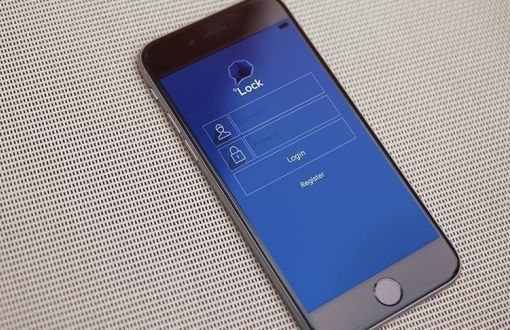Photo: AA/File
Click to read the article in Turkish
Releasing its justified decision today (October 13), the Constitutional Court ruled that findings about the ByLock application was an eligible instrument in judicial processes and rejected an application.
ByLock is a messaging application that is considered as an evidence of membership of the "Fethullahist Terrorist Organization [FETÖ]," the group held responsible for the July 2016 coup attempt.
Bestami Eroğlu, who was dismissed as a teacher by a statutory decree and later received a prison sentence, had applied to the Constitutional Court, alleging that "his right to ask for the protection of his personal data within the scope of the right to respect to privacy because his ByLock communication and personal data was illegally obtained."
The Court stated in the decision that the mentioned right was not violated.
"The purpose of the interference in the applicant's right to ask for the protection of his personal data and freedom of communication is the detection of the FETÖ/PDY and its activities and preventing crimes by doing that," said the court.
Obtaining, analyzing and transferring ByLock data and conveying this to the investigation authorities, and detection of the base stations that the applicant received signal from to find out whether he used ByLock were "eligible instruments to achieve the stated purpose," said the court.
The top court also noted that using the ByLock application was not the sole reason for the applicant's conviction: "The data obtained from the ByLock server did not automatically produce consequences regarding the applicant, it was evaluated and analyzed by first security units and then judicial authorities and it became subject of an investigation after that."
What happened?
Bestami Eroğlu is currently at the Kayseri Prison as a convict.
When he was working as a teacher, he was dismissed from public service by a Statutory Decree on August 15, 2016, during the state of emergency declared after the coup attempt on July 15.
A lawsuit was filed against him later and he was sentenced to 7 years and 6 months in prison for "membership of an armed terrorist organization."
The decision included statements about the establishment, purposes and structure of the FETÖ/PDY and the ByLock application. It said that ByLock data was legal evidence and the application was used by the group members.
The court had also stated that Eroğlu was also a member of a union and an association that were shut down due to their connection to FETÖ/PDY, he attended FETÖ members' meetings and deposited more money than his income to his Bank Asya account.
The Court of Cassation 16th Penal Chamber upheld the verdict of the Regional Court of Justice, which rejected Eroğlu's appeal request. (AS/VK)














